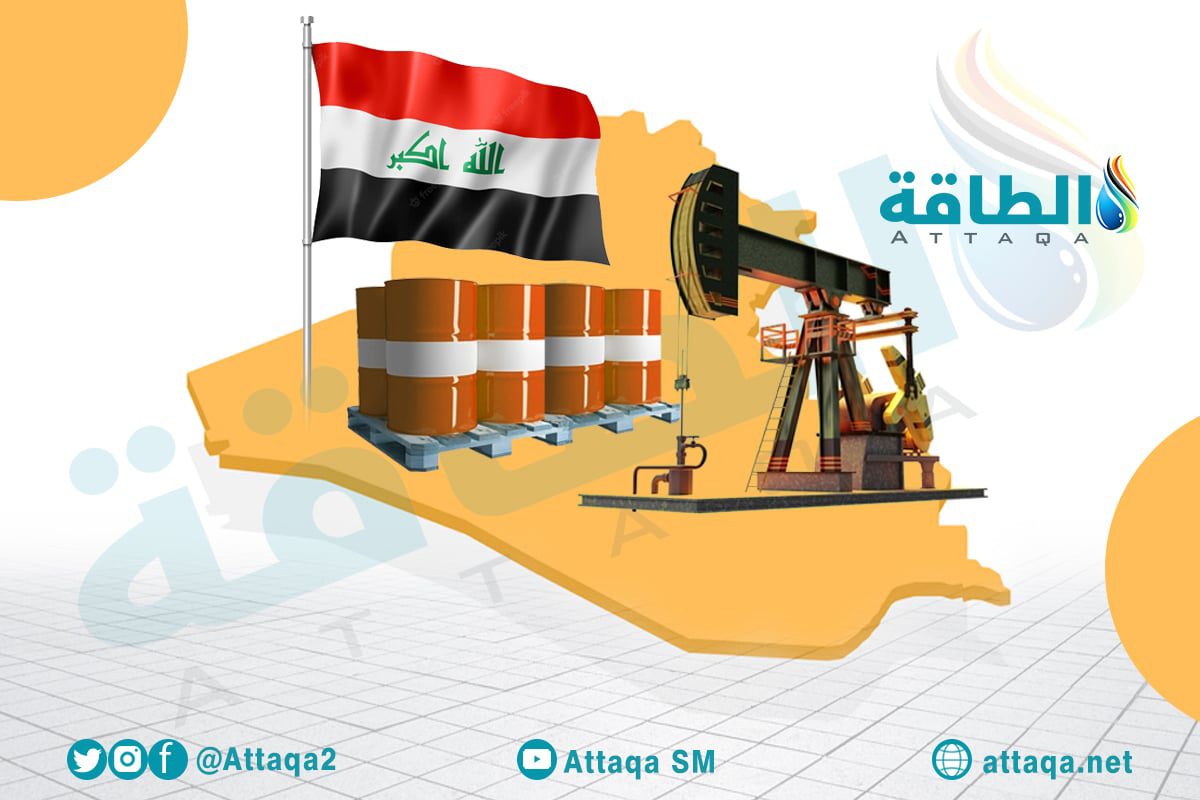Much ambiguity still surrounds the deal to swap Iraqi oil for Iranian gas, which was signed a few days ago, in an attempt by Baghdad to secure the fuel needed to operate power plants.
It is scheduled that the crude oil-for-gas swap deal, agreed upon by Iraq and Iran earlier this week, will include a quantity of high-sulfur fuel oil, according to data seen by the specialized energy platform.
On July 11, the Baghdad government signed a deal that would end the power outages crisis by bartering Iraqi oil for Iranian gas.
The agreement comes within the framework of the Iraqi government’s efforts to address the crisis in the supply of gas that powers power stations, and to avoid financing problems and the complications of US sanctions that prevented the continuity of payment of import requirements. The agreement will contribute to providing more flexibility to the process of supplying gas, operating stations, and stabilizing electricity production.
Agreement details
Under the deal, Iraq is scheduled to supply Tehran with two million tons of high-sulfur fuel oil and 30,000 barrels per day of crude, starting in August for a period of 6 months, in exchange for Iranian gas.
The amount of fuel oil is equivalent to about 71 barrels per day, which is roughly equivalent to the bulk of the surplus production of high-sulfur fuel oil in Iraq.
The crude oil will come from the recently restarted Qayyarah oilfield and “volumes can increase gradually”, Argos said.
Iraq’s oil ministry said exports resumed from the field, mostly by truck, at around 34,000 bpd in June.
Iraq’s debts
The agreement aims to allow Iran to get paid for the gas it delivers to Iraq, after it faced difficulties in doing so due to US sanctions.
Iraq owes Iran about $12.12 billion; Tehran’s inability to get what is owed to it cut gas supplies to Iraq by more than 50% starting on July 1, Iraqi Prime Minister Mohammed Shia al-Sudani said on July 11 when he announced the swap deal.
Yesterday, Wednesday, Electricity Minister Ziyad Ali Fadel responded to the news that Iraq was allowed to pay Iranian gas dues.
He said that the issue of the United States allowing Iraq to pay Iranian gas dues for a period of 120 days was only published in the media and nothing official reached us, according to the Iraqi News Agency.
He added that there are amounts withheld from the Iranian side and paid either with money or through oil, explaining that if the United States grants approval to pay the dues; It is possible to spend part of it on money and the other part on fuel, in reference to the barter deal that was signed a few days ago.
The media had indicated that the United States granted an exemption to Iraq for a period of 120 days to pay dues for gas imported from Iran.
Electricity crisis in Iraq
Tehran’s reduction caused an electricity supply crisis in Iraq during a time when temperatures exceeded 50 degrees Celsius, according to data seen by the specialized energy platform.
Al-Sudani said the barter agreement guarantees the resumption of Iranian gas supplies at 10 million cubic meters per day, which will rise to previous levels.
Iran pumped about 21 million cubic meters per day to Iraq during the winter season, and between 50 million and 55 million cubic meters per day during the summer season.
The barter deal allows Tehran to avoid seeing its revenues parked in the Central Bank of Iraq. What creates a mechanism to bypass sanctions.
It also fits the strategy of weakening US influence in the region, particularly in neighboring Iraq; Washington has been pressing Baghdad for years to give up Iranian gas imports, and recently hailed the signing of the Total Energy investment deal, a rare tribute to a foreign-led oil and gas project.

fuel oil supplies
Iran is a major producer and exporter of high sulfur fuel oil, and the reason for including the product in the deal is not clear, Argos Media reported.
Iraqi fuel oil is often sought after by refineries in Asia Pacific, India and the US for processing through secondary units into more high-value products.
Iran is implementing a number of expansion projects in its refineries with the aim of reducing fuel oil production, while Iraq is working to reduce its exports to meet the demand for electricity generation during the summer months, according to Argos Media.
The sources pointed out that the inclusion of a third party to load Iraqi oil and high sulfur fuel oil appears to be a possible scenario.
“Iran will decide which company will ship the quantities, and after all, it’s Iran’s money,” the source said, without providing any information on how the deals were done.

Leave a Reply